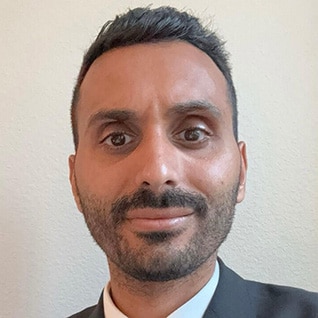Abdullah Alkhattabi, M.D.
 Medical school: King Abdulaziz University, College of Medicine, Jeddah, Saudi Arabia
Medical school: King Abdulaziz University, College of Medicine, Jeddah, Saudi Arabia
Residency: King Faisal Specialist Hospital and Research Center, Jeddah, Saudi Arabia
What attracted you to gastroenterology? ? I was drawn to gastroenterology during my internal medicine residency, I found it to be the most rewarding specialty and the one that aligned best with my interests. The broad nature of the field means you encounter a diversity of complex cases. Additionally, the ability to perform procedures can often expedite diagnosis and directly improve patient health through intervention.
What attracted you to Mayo Clinic for fellowship training? Mayo Clinic's reputation as a world-class healthcare institution, renowned for its patient-centered approach, is a significant draw for my fellowship training. Being mentored by such a distinguished team, consistently ranked among the top in the nation's gastroenterology field, presents a valuable opportunity for my professional development.
What makes the Advanced Esophageal Disease Fellowship at Mayo Clinic unique? This fellowship is unique, being one of the few nationwide. The program's structure, which emphasizes all aspects of esophageal diseases, aligns perfectly with my goals. The combination of mentoring faculty, a high volume of patients, complex cases, and a multidisciplinary team approach creates an exceptionally valuable training experience.
What does your future look like right now? The future looks promising. Upon returning to Saudi Arabia, I will have the opportunity to serve a large patient population with a significant need for esophageal disease specialists. I believe that my expertise will be instrumental in improving patient outcomes, contributing to medical education, and research.
/prod01/channel_2/media/mccms/content-assets/academics/residencies-and-fellowships/advanced-esophageal-disease-fellowship-az/1024X512-1721429_WF124800_0013-content.jpg)
 Medical school: King Abdulaziz University, College of Medicine, Jeddah, Saudi Arabia
Medical school: King Abdulaziz University, College of Medicine, Jeddah, Saudi Arabia/prod01/channel_2/media/mccms/content-assets/academics/residencies-and-fellowships/choosing-mayo-clinic/size-720X480_gradution-alumni-3392011--0335.jpg)